C.S. Lewis’s The Magician’s Nephew is a masterful tapestry of themes such as choices, courage, obedience, and the nature of good and evil—all brought to life through the vivid personalities of its characters. In this prequel to The Chronicles of Narnia, each character serves as a lens through which we can better understand the story’s central ideas. From the arrogance of Queen Jadis to the curiosity of Digory, every personality reflects deeper truths about human nature, desire and the choices we face.
Thank you for reading this post, don't forget to subscribe!1. Queen Jadis: Arrogance and Ignorance
"The Witch knew the Deep Magic better than I do. There is a magic deeper still which she did not know."
Queen Jadis is a character who embodies raw power and arrogance. She sees herself as invincible, believing her knowledge of magic and domination makes her superior to all others. She uses Polly and Digory to get closer to London and bullies Uncle Andrew, who is more than once likened to a spineless “shrimp” in her presence. However, Jadis may grasp the “deep magic”—rules governing life and death—but she lacks the humility and wisdom to understand there is something greater. And it is precisly her inability to comprehend Aslan’s “deeper magic,” rooted in self-sacrifice and love, which is the ulitmate reason for her demise!
The etymology of “to sin” actually means to “miss the mark” and Jadis’s ignorance becomes her undoing, serving as a cautionary tale about the dangers of arrogance and a refusal to acknowledge what lies beyond one’s grasp. Driven by her desire for eternal life and dominion, Jadis takes the forbidden apple without understanding its power or the price it carries; though it grants her immortality, it also curses her existence with unending bitterness and isolation. She consumes the fruit, but instead of gaining the joy and power she seeks, she dooms herself to a life of sadness and emptiness.
2. Uncle Andrew: Blindness to Truth
"What you see and hear depends a lot on where you are standing: it depends a lot also on what sort of person you are."
Uncle Andrew is a deeply flawed but fascinating character. Unlike Jadis, his motivations are less about grand ambition and more about selfish curiosity. He is not inherently evil but is blind to the truth and beauty of the world Aslan creates.
Uncle Andrew’s fundamental flaw is his limited perspective. While the others marvel at Aslan’s song and the birth of life, Uncle Andrew hears only a noise and dismisses it as nonsense. His inability to perceive the wonder unfolding before him reveals (comically) how blind he really is! Where Digory and Polly stand in awe, and even Jadis recognizes Aslan’s power with unease, Uncle Andrew retreats further into denial, refusing to believe in what he cannot control or exploit.
Rather than witnessing the goodness around him, Uncle Andrew fixates on Queen Jadis, misinterpreting her cruelty as power and treating her with reverence, even as she manipulates and mistreats him.
3. Digory: The Power of Trust
"Son of Adam, are you ready to undo the wrong that you have done?"
Digory is perhaps the most dynamic character in The Magician’s Nephew. His natural curiosity and desire for adventure lead him to make mistakes, such as awakening Jadis and bringing chaos into Narnia. However, his defining moment comes when he chooses to trust Aslan completely, even when the path is unclear.
Aslan, in his infinite wisdom and compassion, is deeply moved by Digory’s grief and his desperate desire to save his mother. Yet instead of offering an easy solution, Aslan asks Digory to journey to the distant garden to retrieve the magical apple—an act of trust that requires courage, obedience, and faith in something greater than himself. This trust is what sets Digory apart from characters like Jadis or Uncle Andrew, who seek control and rely only on their own limited understanding. Through this faith, Digory is not only able to undo some of the harm he caused but also to bring healing to his family, as the apple’s power cures his ailing mother.
Digory’s journey reminds readers that trust—in Aslan, God, or the Universe—is the cornerstone of redemption and restoration. By surrendering his doubts and choosing to obey, Digory becomes a vessel for the deeper magic at work in Narnia, proving that the key to a happy ending lies not in personal power or knowledge but in faith and trust in something beyond oneself.
And just like in life, when we put our trust in God, the Universe always overdelivers- Digory receives everything he always wished for, even when it didn’t seem like he would!
4. Polly: Wisdom and Friendship
"A girl isn't a fool. She knows we can't get out again once we're in."
Polly is a steadying presence throughout the story, acting as a counterbalance to Digory’s impulsive nature. She is courageous and resourceful, but her defining trait is her wisdom. This quote reflects Polly’s practical mindset and her ability to think through the consequences of their actions—a skill Digory often lacks.
Polly’s friendship with Digory is a comforting cornerstone of the story. Though they bicker at times and their friendship is not ideal, Polly’s loyalty and level-headedness play a crucial role in their survival and success. She is the definition of stability.
Her wisdom also reminds readers that bravery is not just about bold actions but also about knowing when to speak up and make the right choice, even when it’s difficult.
Her suspicions of Jadis are completely spot-on; she trusts her instincts and her disdain and annoyance for Jadis’s grandiosity clash (thankfully) with Digory’s and Uncle Andrew’s ogling fascination and admiration for her feminine charisma and beauty!
Use Character Analysis and Paragraph Writing Graphic Organizers to Teach "The Magician's Nephew" with Your Students!
There is so much wisdom in C.S. Lewis’s novel. If you want to teach this novel this year with your students, you’ve got to watch this video preview and check out my resource “CS Lewis The Magician’s Nephew Characters & Paragraph Writing Graphic Organizers”.
This resource is perfect if you want to help your students carry out and in-depth analysis of the characters and the novel’s themes! It is also perfect for setting the foundation for literary analysis, as the graphic organizers help them create cohesive and structured paragraphs, ultimately helping them give a voice to their opinions and findings. Combining writing skills with a novel is also the perfect way to make it engaging and meaningful.


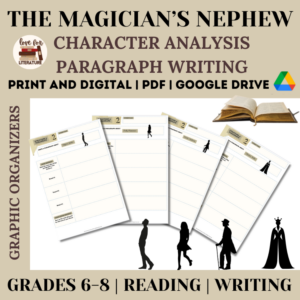
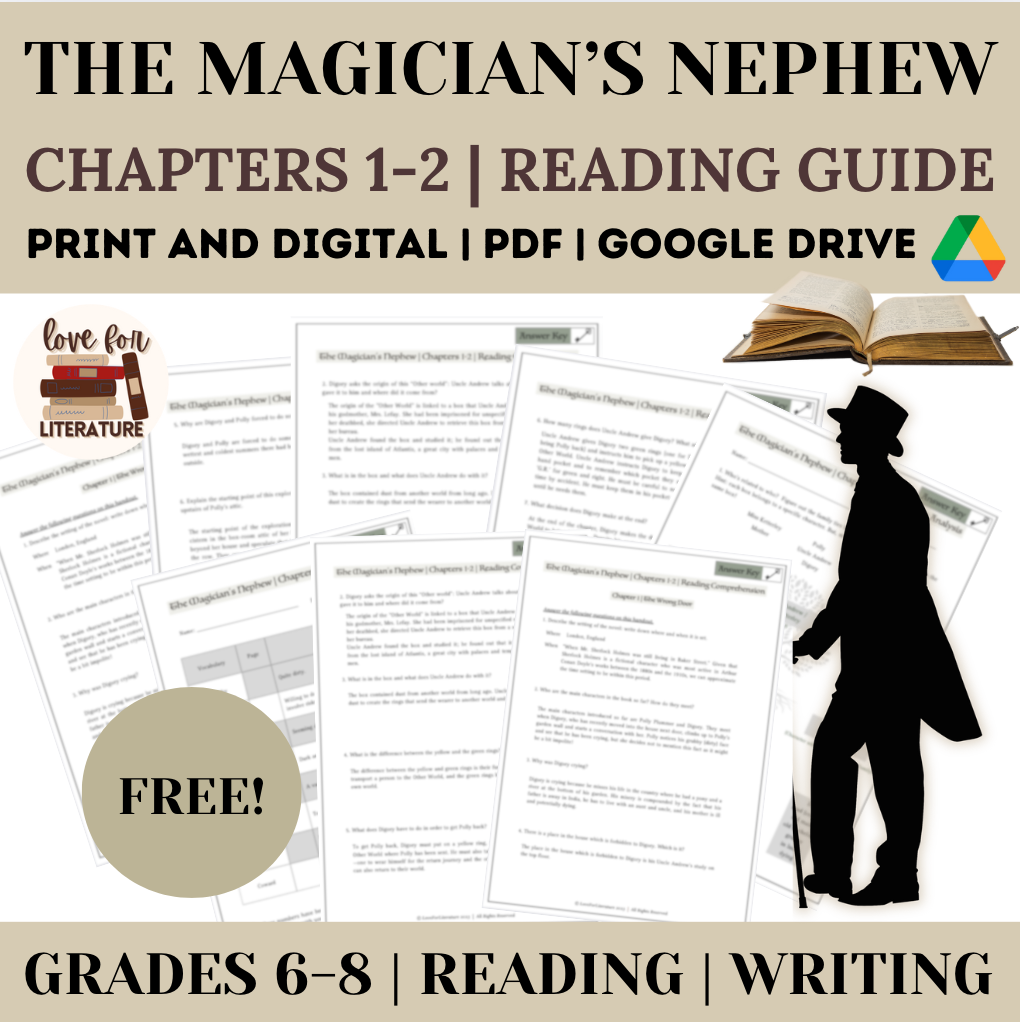
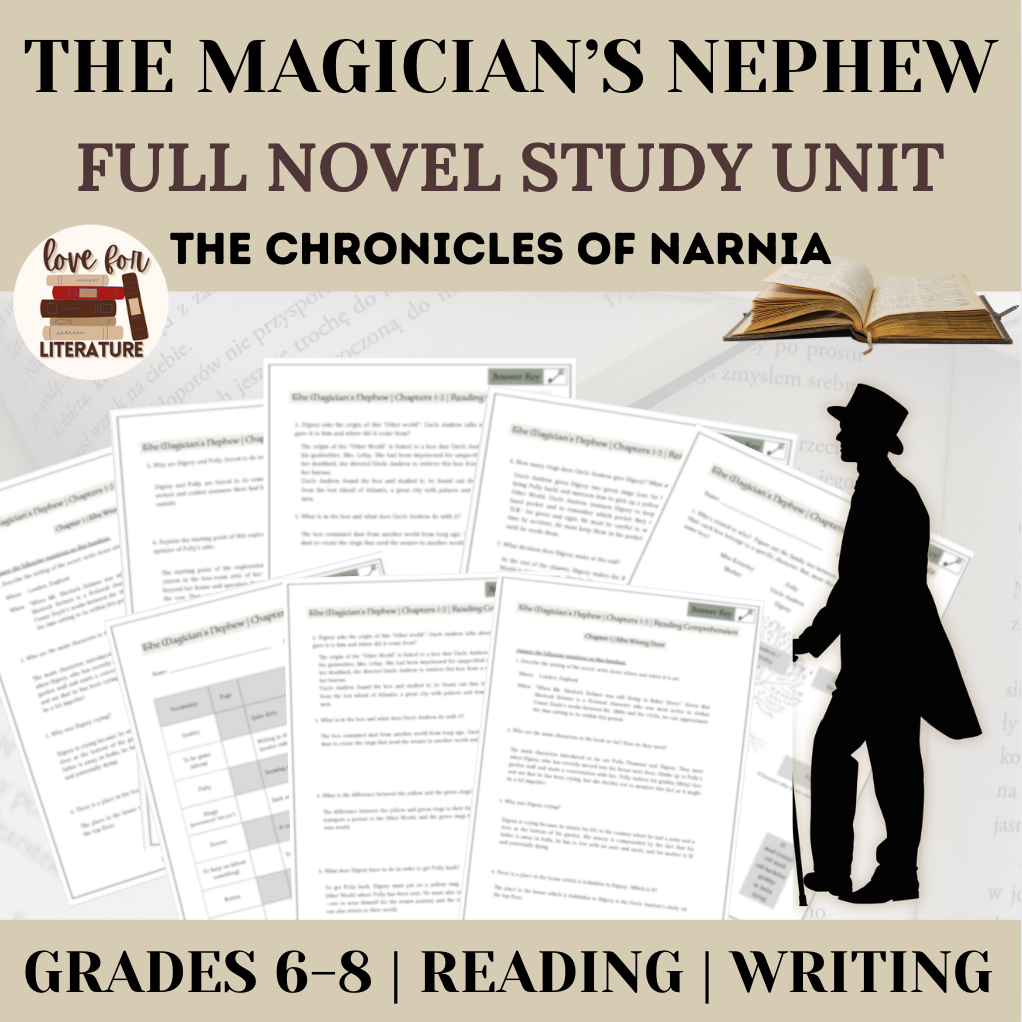
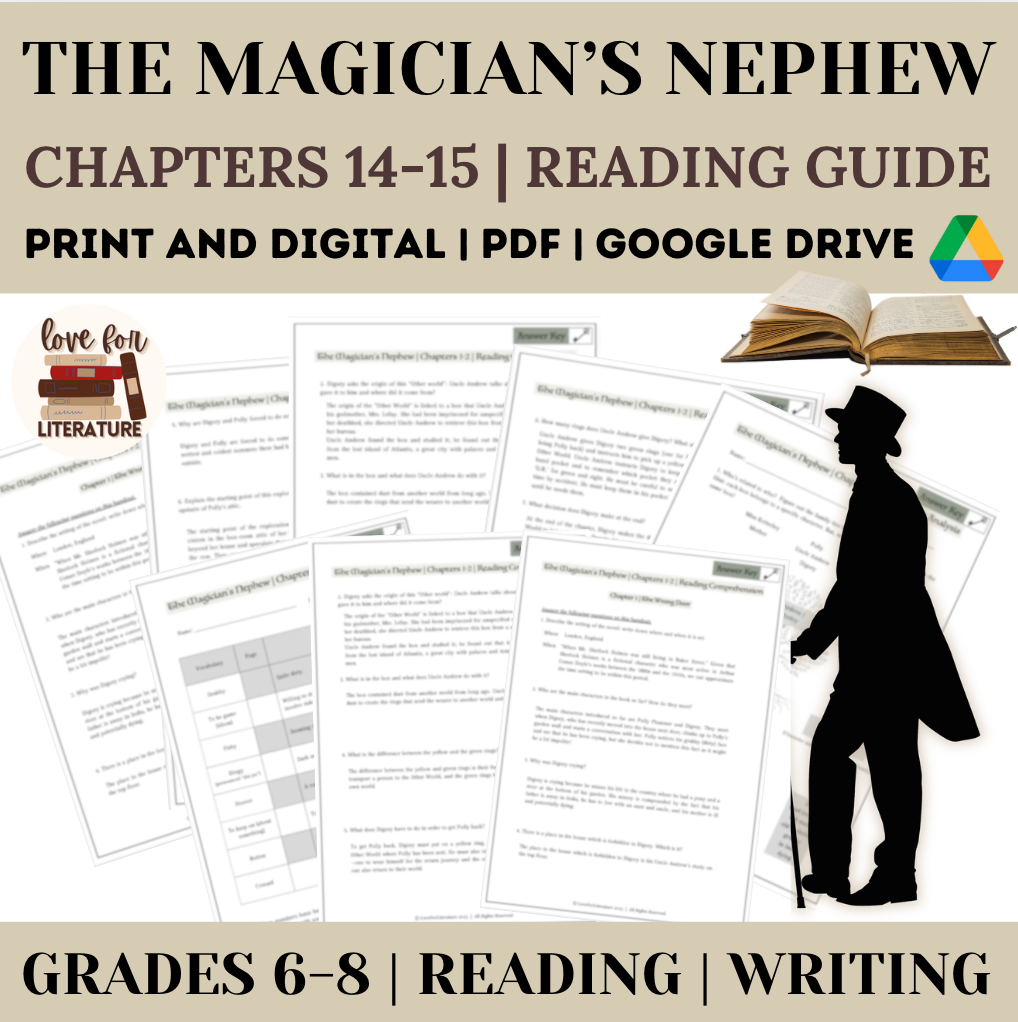
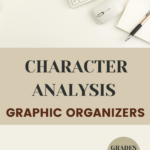 Previous Post
Previous Post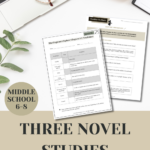 Next Post
Next Post
[…] you’re teaching The Magician’s Nephew and want to go even deeper, don’t miss my post on exploring the heart of the novel through its characters. It’s perfect for guiding your students toward meaningful character analysis and discovering the […]